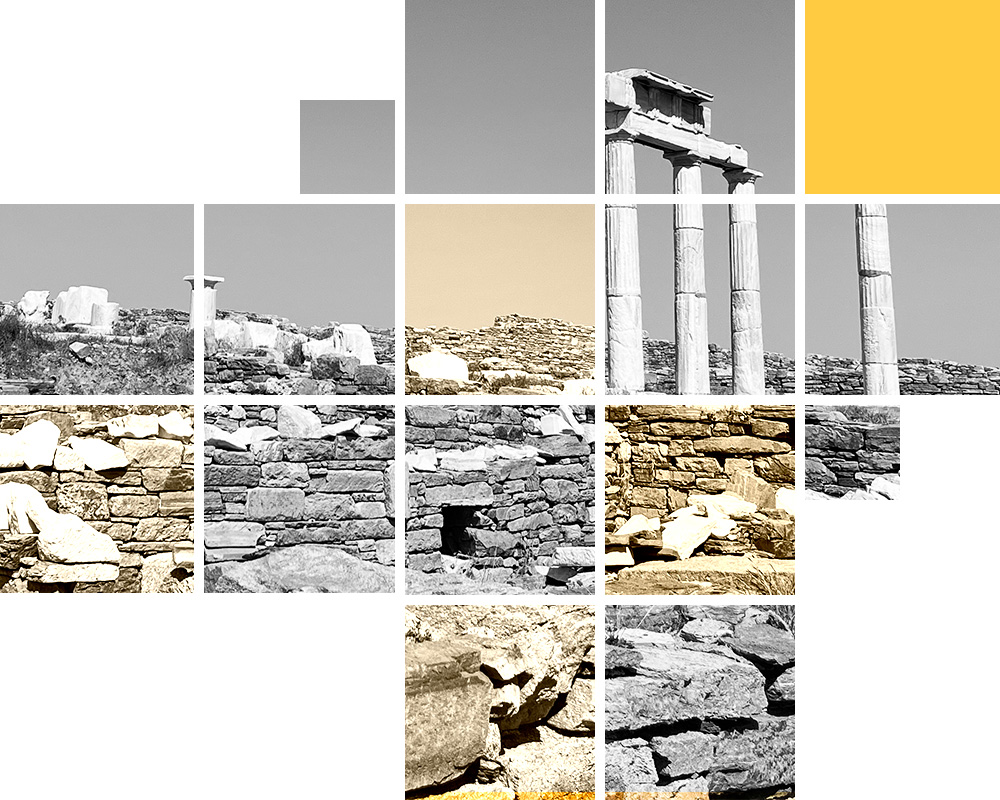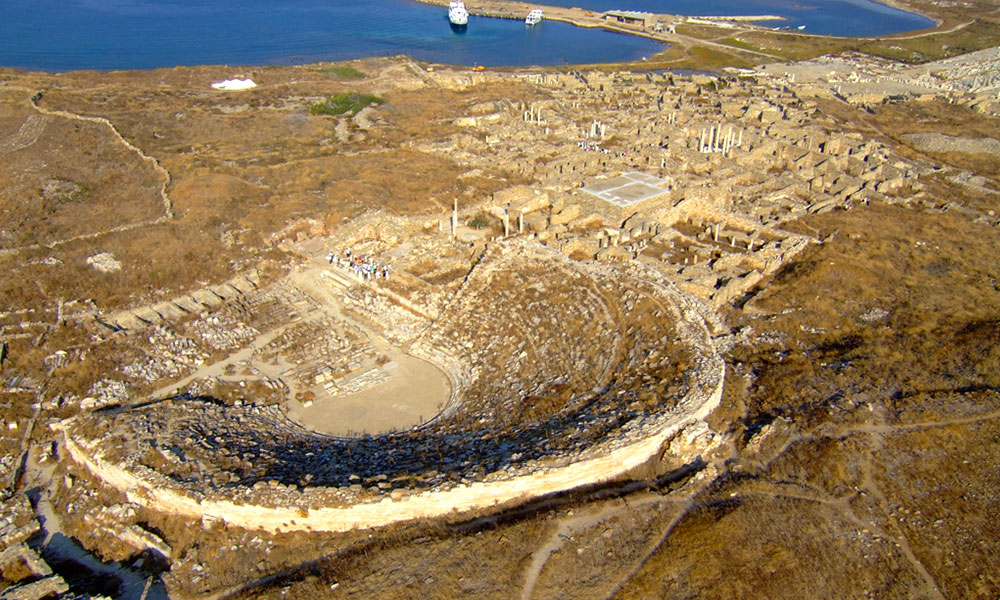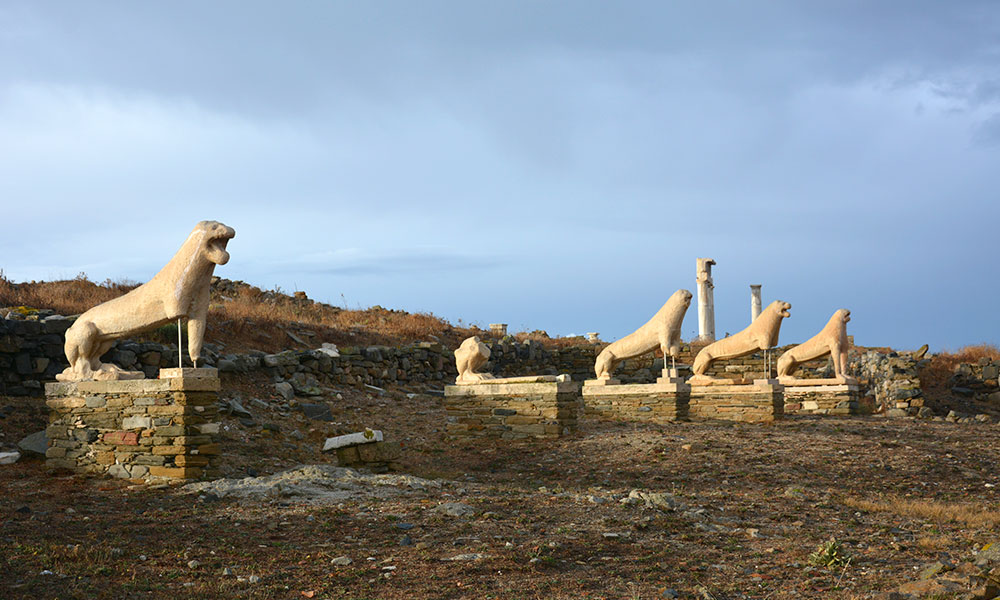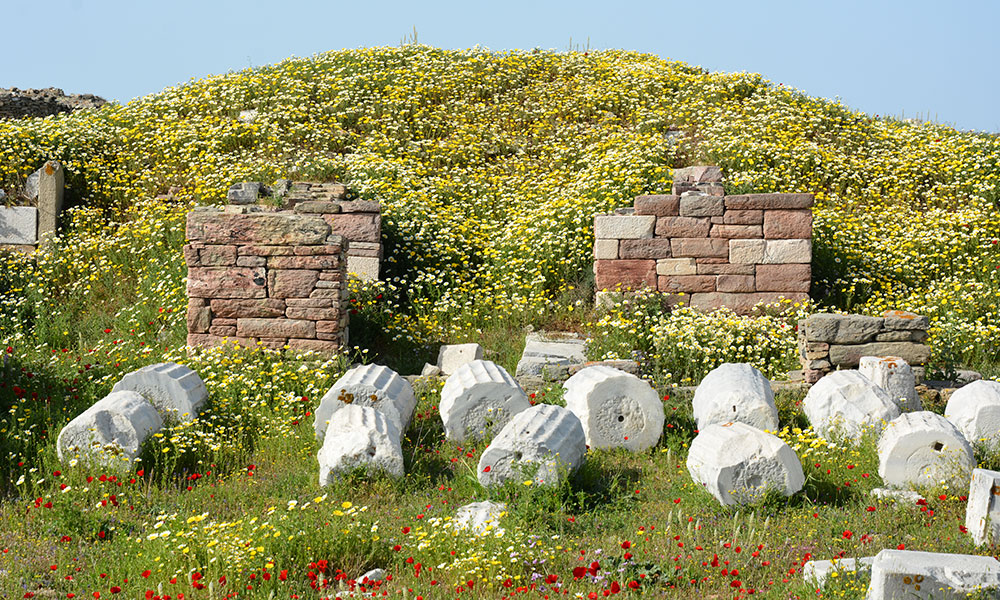Pilot site #1: Delos Island

Country:
Greece
Type of heritage:
Cultural Heritage
Owners of the site:
Hellenic state
Managers of the site
Ephorate of Antiquities of the Cyclades
Coordinator for the ARGUS project:
Ephorate of Antiquities of the Cyclades
Coordinates:
37°23'36.0"N 25°16'16.0"E
Description

The archaeological site of Delos expands on a small rocky island (just 3.4 km2) with important monuments in a protected cultural heritage landscape, inscribed in UNESCO’s World Heritage List in 1990. It is an important site in Greek mythology, as it was considered the birthplace of Apollo and Artemis, and a witness of the Greek heritage throughout the centuries.
Threats of the Delos site
Sea and wind erosion, key causes of damage to antiquities, have intensified over the last decade. Soil erosion is facilitated by the dry conditions, livestock and strong winds during summer and by the few flash floods during winter. Although Delos is semi-arid, more irregular and intense rainfalls have been observed in the last decade. The sea-level on the west coast, where the main site is located, has risen considerably compared to the Hellenistic period (+1.5m) and destructive invasions of water penetrate building foundations. Water reservoirs of Hellenistic houses were coated with mortars that are often preserved, and the upper exposed sides were decorated with mosaics, which are threatened by increased salt-weathering due to temperature and humidity fluctuations and extremes. Moreover, the proximity of the island to Mykonos, a mass tourism destination, creates maritime pollution.

Main objectives to be reached with the ARGUS interventions

- To examine the climate parameters and the geomorphological characteristics of Delos;
- to collect multimodal data on the structural and chemical condition of the architectural elements and the level of degradation of mosaics and frescos;
- to estimate air and maritime pollution threats;
- to assess the coastal and soil erosion impact;
- to assess seismic threats;
- to create risk-assessments maps and evaluate multimodal data fusion and ARGUS DSS.